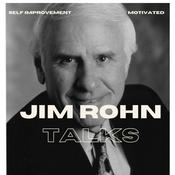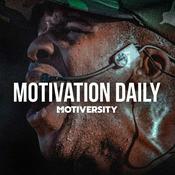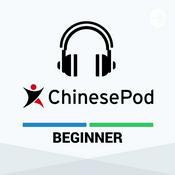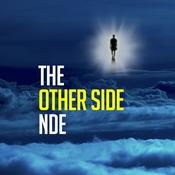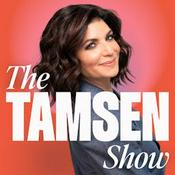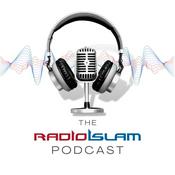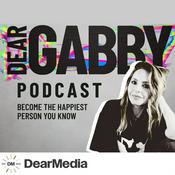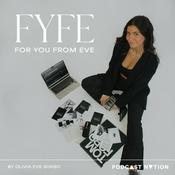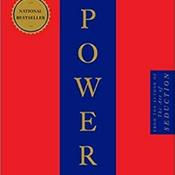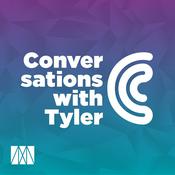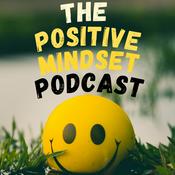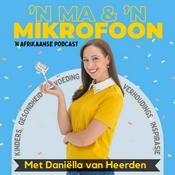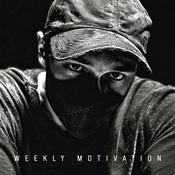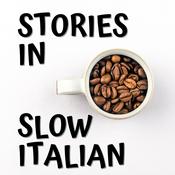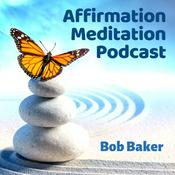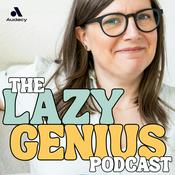32 episodes
- Thirteen colonies rose up, rebelled against an Empire, and won their independence. These unlikely victors built a new nation on democratic principles that inspired similar movements around the world.
How should we tell the story of our nation’s founding? Guests Sarah Botstein and David Schmidt, who co-directed The American Revolution with Ken Burns, explain how chronology and characters shape their longform PBS documentaries and accompanying curriculum materials, in a bonus episode of the History Matters Podcast.
“We always work chronologically. We don’t work thematically. And I think when teaching history, I have been fairly convinced that that’s the way to do it,” says Botstein. “When you teach thematically, you silo things. When you work chronologically, you show the complexity, the nuance, unbelievable heroism, the ways people do great things and terrible things all at once, particularly in the story of a war.”
Children are “capable of understanding these complex stories,” Schmidt says. “I think you can trust children’s intelligence a little more than we often do.”
The filmmakers describe the important role that characters play in keeping learners and viewers engaged. Their series follows George Washington and other leaders, as well as a native community in the Shenandoah Valley, young soldiers who volunteered for the fight, and Betsy Ambler of Yorktown, Virginia, who ages from 10 to 18 during the war.
“She lived much of her life as a refugee and her town was completely destroyed by that war. She never witnessed a battle, but she was impacted by the war every day,” Schmidt says. “These are people who are not dissimilar from you and me.”
“If you are following stories of these other people, you’re worried about what George Washington might do, because you are worried about them,” Botstein says. “It makes students understand why history matters. We’re all impacted by decisions that leaders make and by world events—small, medium, and large.”
They also discuss how visual artifacts like paintings and maps are especially engaging for young students and can help them understand a history story from different points of view.
“It’s really important when teaching history to show a variety of perspectives,” Botstein says. “To have empathy and openness and generosity, to try to understand why people did good things and why people did bad things, and how we can be optimistic in learning about history to make a better future, and make better on the promises that the revolution tried to inspire.”
This podcast is produced by the Knowledge Matters Campaign and StandardsWork, on behalf of the History Matters Campaign. Follow the History Matters Campaign on Instagram, Facebook and Twitter/X. Search #historymatters to join the conversation.
Production by Tressa Versteeg. Original music and sound engineering by Aidan Shea. - In Thermopolis, Wyoming, second-grade students love learning about the War of 1812, from the swashbuckling sea battles off the coast of Louisiana to the bombardment at Maryland’s Fort McHenry that inspired the “Star-Spangled Banner”—engaging lessons that build knowledge alongside literary and historical thinking skills.
This type of learning is powered by a strong, coherent curriculum that ensures learning connects from unit to unit and year to year, says teacher Laura Stam, a 2024–25 Goyen Literacy Fellow who writes about the sciences of reading and learning on her Substack, The Knowledge Exchange. “As soon as we start teaching it, teachers talk about how excited their students are,” she says.
In this final episode of the first season of the History Matters Podcast, Stam also explains that such curriculum helps bridge gaps in elementary teachers’ historical content knowledge. In elementary classrooms, building content expertise is a challenge because “we’re teaching all of the subjects,” she says. Strong curriculum is a sound starting point for teachers to build the knowledge they need to confidently teach history. And rather than curating content, teachers can focus on delivering instruction and connecting history lessons to art and culture.
“A really good curriculum brings in not just that history, but brings in all of the cultural pieces attached to it, the art and the poetry and the music that really enrich that knowledge,” she says. “If a really good curriculum has all those pieces built in for you, you just get to be the expert and deliver that, be the artist that delivers that for your students without having to curate it all yourself.”
Stam also describes how her students’ curiosity about historical topics extends beyond classroom instruction. Parents have shared stories of students connecting family vacations to history lessons about the Underground Railroad, for example, and Stam has overheard young students debating the relative merits of living in modern times versus the ancient Indus Valley Civilization while watching a local basketball game.
“They’ll go home and they want to explore their own interests,” she says. “They are getting books and looking on the Internet and finding out more information on their own topics that may not necessarily be what we learned in school. It’s interesting. It’s inspiring to know that they can learn about these things on their own. That’s the end goal, right? We want to teach them to be their own learners.”
This podcast is produced by the Knowledge Matters Campaign and StandardsWork, on behalf of the History Matters Campaign. Follow the History Matters Campaign on Instagram, Facebook and Twitter/X. Search #historymatters to join the conversation.
Production by Tressa Versteeg. Original music and sound engineering by Aidan Shea. - Many teachers build history lessons on primary sources like letters and legal documents. But without context and historical thinking skills, students can’t make much meaning from them, say guests Jon Bassett and Gary Shiffman, co-founders of the Four Question Method for history instruction.
“Primary sources, for us, are ways to practice doing what historians do. 8th graders aren't historians, 12th graders aren't historians. So it’s the silly mistake that says, we need to do exactly what the experts do so that we become experts. We actually need to do what the experts did before they were experts so that they became experts, which means learn a lot of stories,” Shiffman says.
“One of our slogans is ‘Story First’. And everything flows from that,” Bassett tells host Barbara Davidson.
In the Four Question Method, history is taught as a series of narratives and events are explored in a coherent, chronological way. Question One is simply, “What happened?” In other words, what’s the story? Question Two is “What were they thinking?” and helps students understand and interpret the perspectives of people involved in the story.
Question Three is “Why then and there?” which targets explanation as a skill. For example, students studying the American Revolution can contrast the Canadian colonies, which stayed with Great Britain, with the 13 colonies that went to war.
“That asks kids to think in a more sophisticated way about the specific story and say, ‘Wow, stories like this, they happen sometimes and not others. Why then? Why there?’” Shiffman says.
Question Four is “What do we think about that?” and develops judgment, which Shiffman defines as “the capacity to generalize from your specific reaction to a case and to say, ‘Hold on. What are the general features of this case? And how can I make a rule to guide my own behavior in the world so that I know when to support the revolution and when not to?’ ”
Bassett and Shiffman describe visiting a Tennessee classroom using a 4QM elementary history unit where students were learning about the decision of a Lakota Sioux leader to surrender the U.S. Army.
“The kids in the room, they knew a lot. They knew the story, they knew about this guy, and they got to deliberate toward judgment about whether Chief Joseph made the right choice or not. They can do that in fourth and fifth grade, absolutely,” Shiffman says.
This podcast is produced by the Knowledge Matters Campaign and StandardsWork, on behalf of the History Matters Campaign. Follow the History Matters Campaign on Instagram, Facebook and Twitter/X. Search #historymatters to join the conversation.
Production by Tressa Versteeg. Original music and sound engineering by Aidan Shea. - What do teachers need to successfully teach high-quality history lessons in elementary school?
A strong curriculum is a great start, but teachers also need aligned professional learning and time to dig in and build the content knowledge that supports confident instruction, says guest Courtney Dumas. In this episode, she explains how her organization, Edu20/20, is supporting Louisiana educators as they implement the state’s content-rich Bayou Bridges elementary social studies curriculum.
Effective professional learning for social studies instruction is rooted in curriculum, but it doesn’t just cover how the curriculum works, she says. Dumas and Edu20/20 discuss specific content in detail and then lead model lessons where teachers pretend to be fifth graders, which allows them to experience the curriculum as their students will.
“Professional learning in social studies is different because the No. 1 thing is the content,” she says. “In Ouachita, we talked about their grade level, their specific content, their specific units, their specific assessments. And then we had them experience a lesson as a student. And that was kind of where the magic happens.”
Dumas also stresses the importance of giving teachers time to study history content together. Many elementary teachers are generalists, so building historical content knowledge is an important aspect of effective professional learning in social studies, she notes.
“We set lots of high expectations for curriculum, but sometimes we don’t give teachers the time and space to meet those expectations,” she says. “You’d be surprised how many people don’t know basic history. . . It is so important that we give teachers the time and space to interact with that content.”
Dumas sees a bright future for elementary history instruction, because “people are understanding the importance of it and how it complements literacy,” she says.
“We think that by giving more time to ELA, that’s going to be the answer. But really, social studies is ELA,” she says. “It’s going to make them better writers, better readers, better citizens. That’s what we want.”
This podcast is produced by the Knowledge Matters Campaign and StandardsWork, on behalf of the History Matters Campaign. Follow the History Matters Campaign on Instagram, Facebook and Twitter/X. Search #historymatters to join the conversation.
Production by Tressa Versteeg. Original music and sound engineering by Aidan Shea. - In Medway, Massachusetts, “social studies is a subject to be valued,” fifth-grade teacher Jennifer Lindsey explains in this episode. “It’s the place to teach kids how to talk to each other and negotiate conversations and digest information and form an opinion—but also listen to others’ opinions and back that up with evidence,” she says.
This content-rich, inquiry-based learning is powered by Investigating History, a new, free social studies curriculum developed by Massachusetts teachers, scholars, and the state education department. It’s aligned to state standards and is available for grades 5–7; a pilot of grades 3–4 is underway.
Lindsey describes the “resource gap” of the past: either textbooks from 1992 or materials from the Internet, much of which is intended for teenage students. The state-developed curriculum is designed to build knowledge and literacy and critical-thinking skills in young students and works within a daily 30-minute timeslot, she tells host Barbara Davidson.
“Three core routines—a supporting question launch, an investigating sources routine, and a putting it together routine—really set kids up nicely to learn some solid informational texts and written and oral discourse skills because they are starting from a place of curiosity,” she says. “And in my literacy block, I’m teaching kids how to ask questions to keep themselves engaged and how to clarify ideas by asking questions. Those two things go hand-in-hand.”
The curriculum also is designed to support teachers with their content knowledge and provide guidance for challenging questions and conversations, Lindsay says. In one lesson, fifth-grade students are tasked with advising the president on a major decision, such as whether to declare war on Great Britain in 1812. They research the options and present their advice to the class—and often disagree with what actually happened.
“Fifth graders are talking about foreign policy and it will blow your mind,” she says. “Tiny humans can have the hard conversations.”
This podcast is produced by the Knowledge Matters Campaign and StandardsWork, on behalf of the History Matters Campaign. Follow the History Matters Campaign on Instagram, Facebook and Twitter/X. Search #historymatters to join the conversation.
Production by Tressa Versteeg. Original music and sound engineering by Aidan Shea.
More Education podcasts
Trending Education podcasts
About The Knowledge Matters Podcast
Join the Knowledge Matters Campaign in this thought-provoking and engaging exploration of the vital role of knowledge-building in education. Each season delves into pressing issues, innovative ideas, and transformative solutions. It’s a must-listen for educators, administrators, parents, and anyone with an interest in the evolving landscape of learning.
Podcast websiteListen to The Knowledge Matters Podcast, The Mel Robbins Podcast and many other podcasts from around the world with the radio.net app
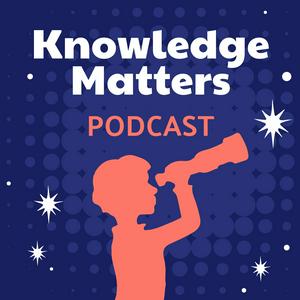
Get the free radio.net app
- Stations and podcasts to bookmark
- Stream via Wi-Fi or Bluetooth
- Supports Carplay & Android Auto
- Many other app features
Get the free radio.net app
- Stations and podcasts to bookmark
- Stream via Wi-Fi or Bluetooth
- Supports Carplay & Android Auto
- Many other app features


The Knowledge Matters Podcast
Scan code,
download the app,
start listening.
download the app,
start listening.



